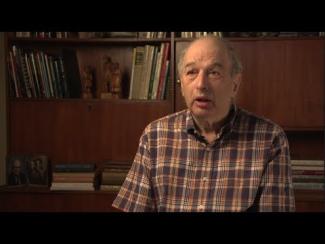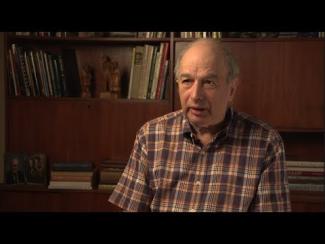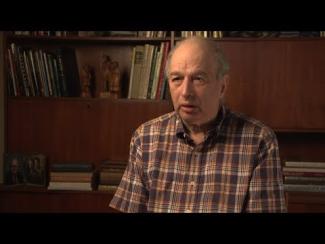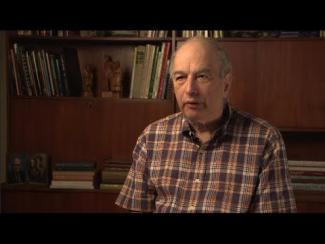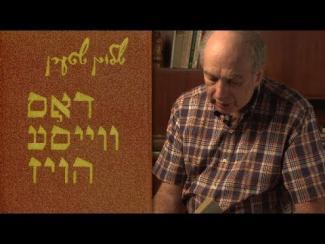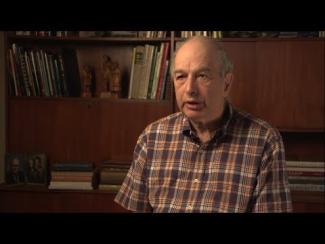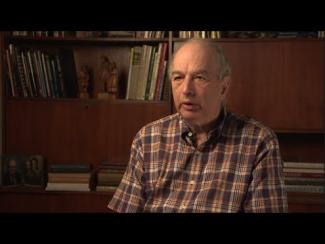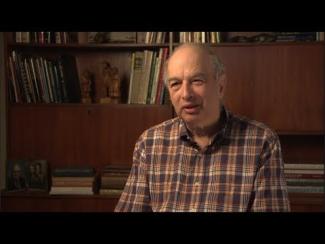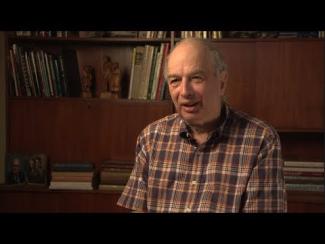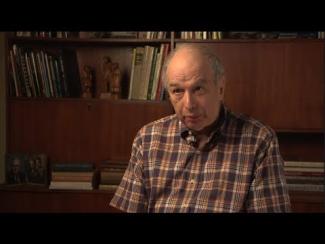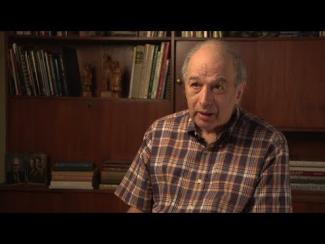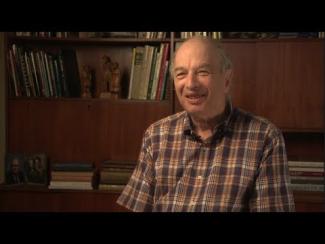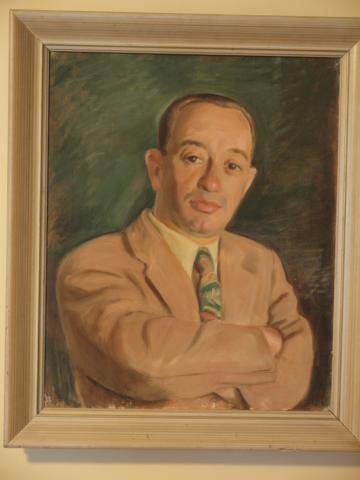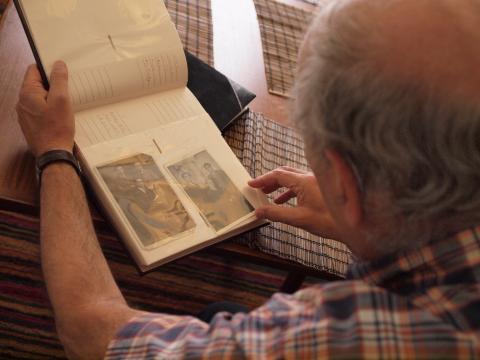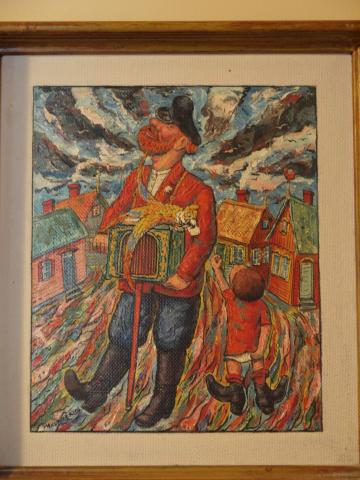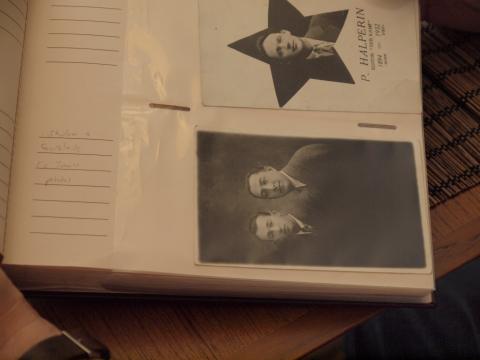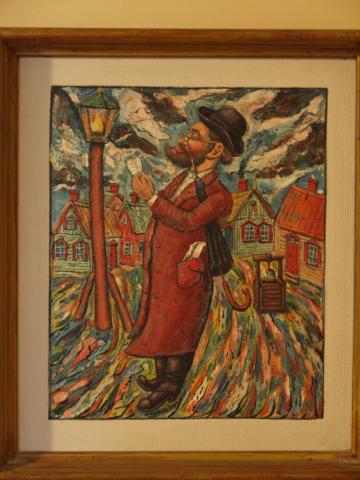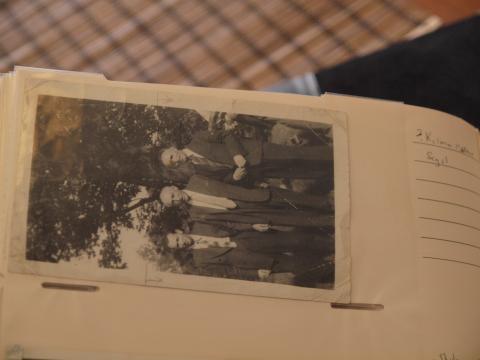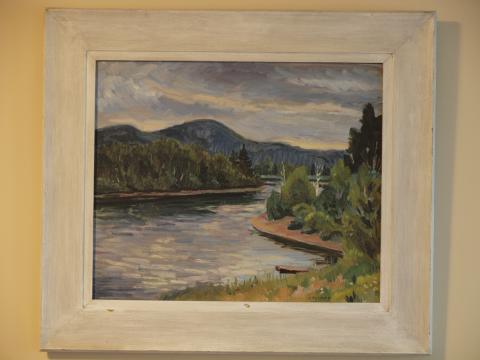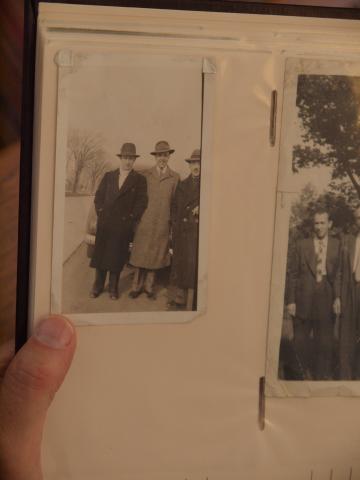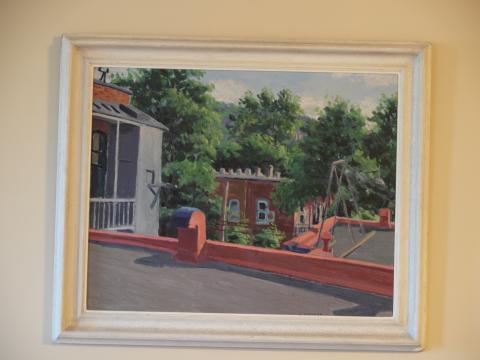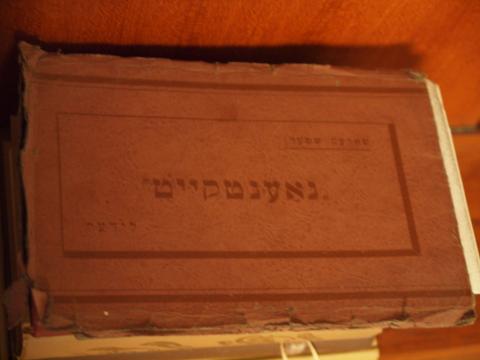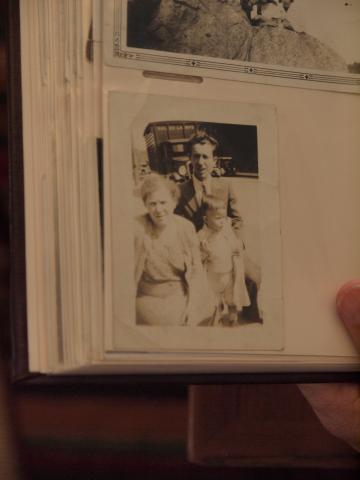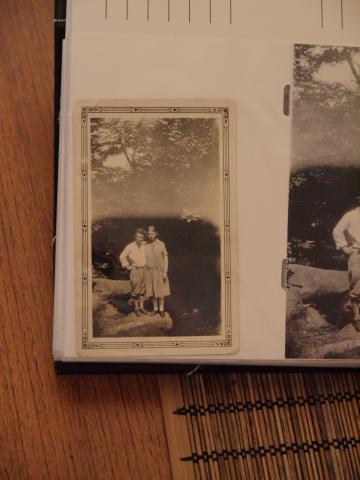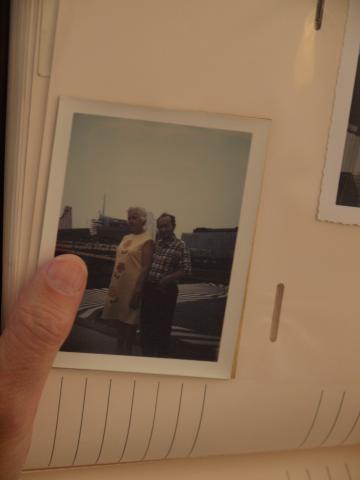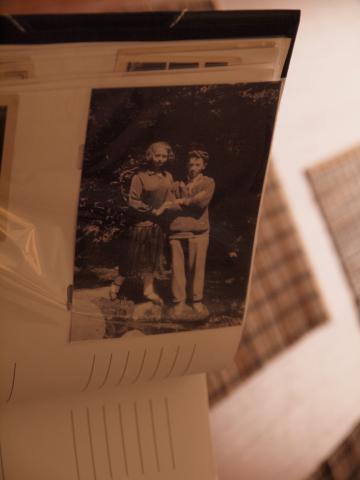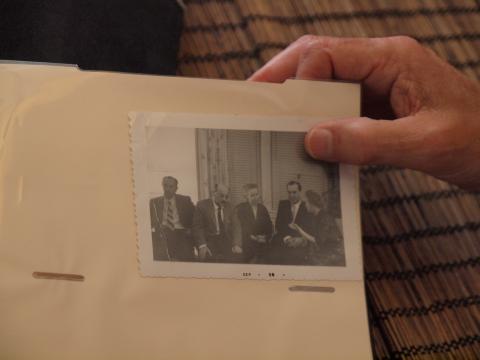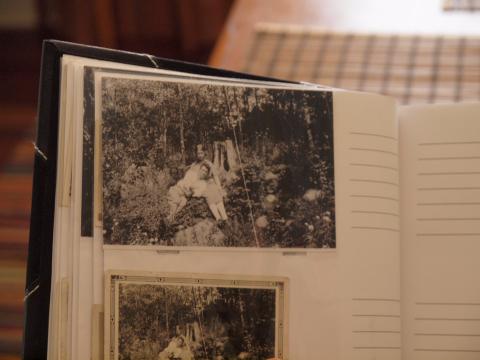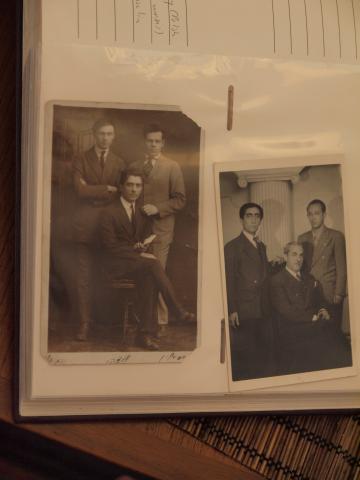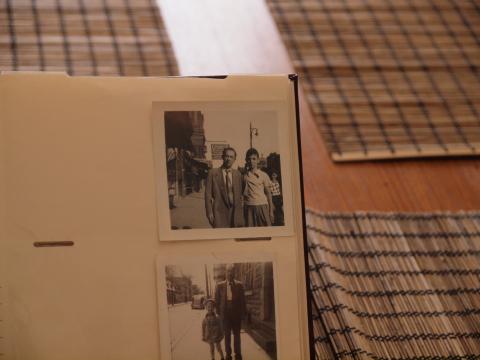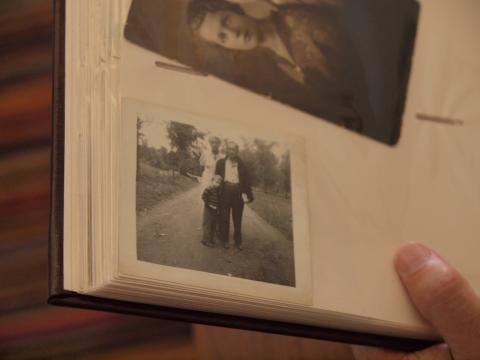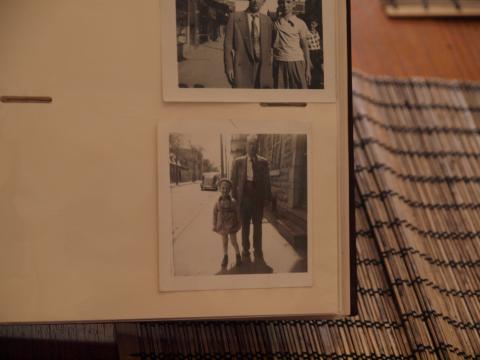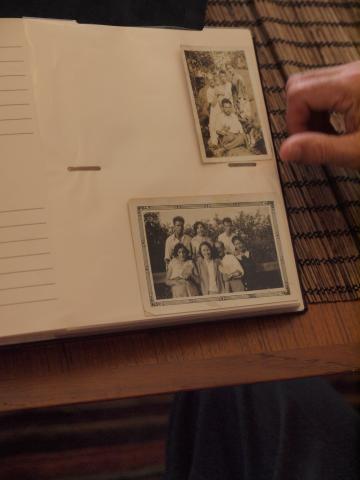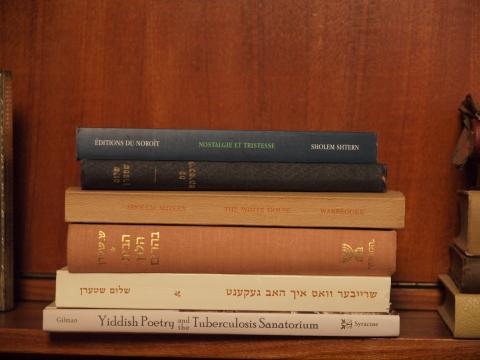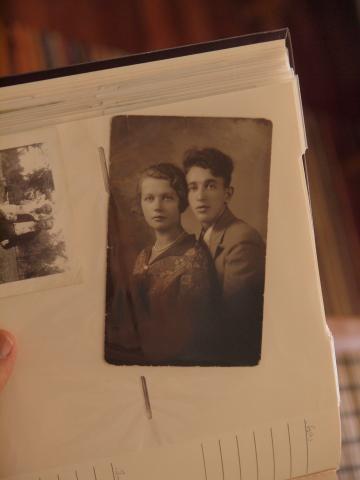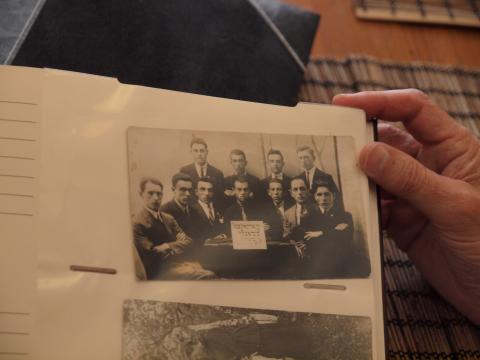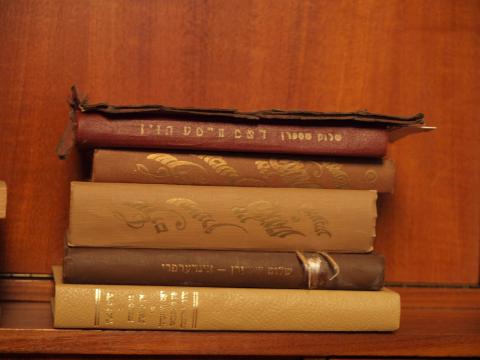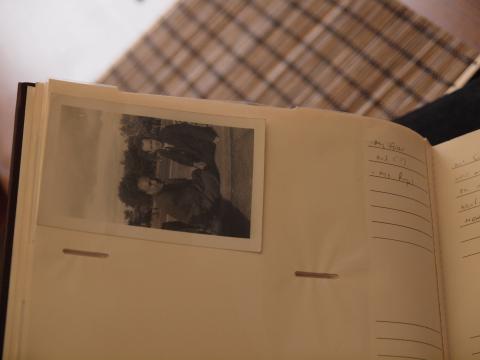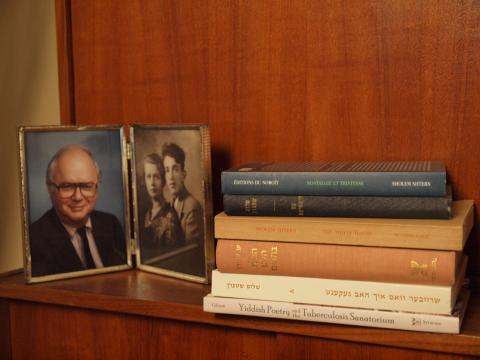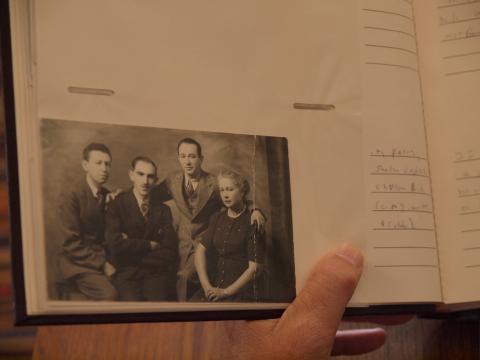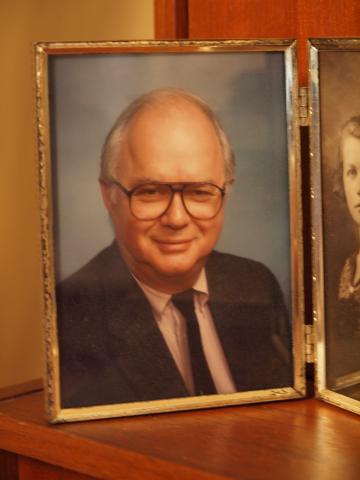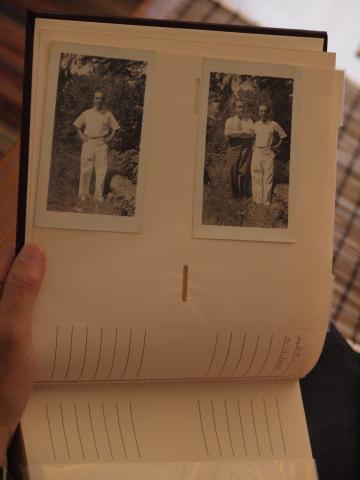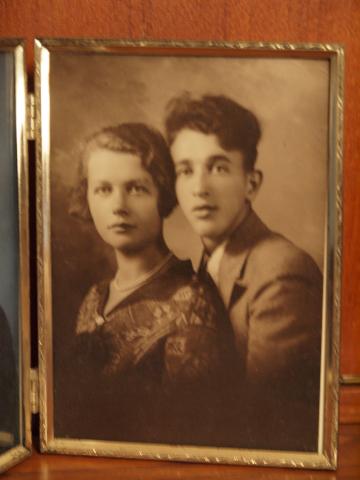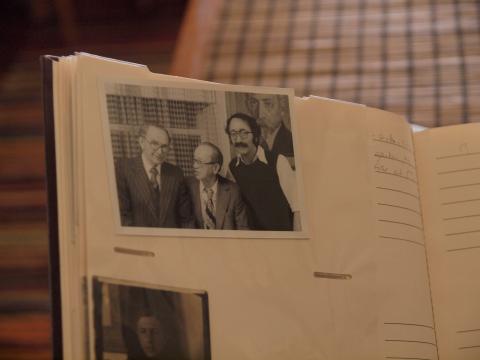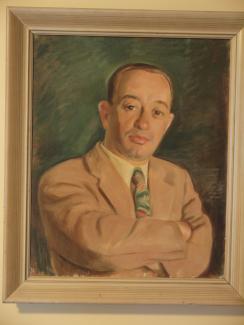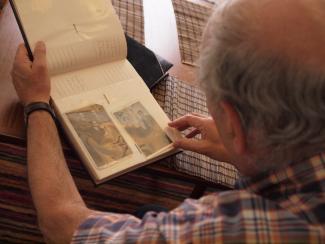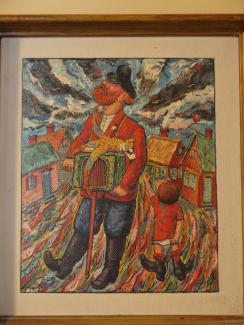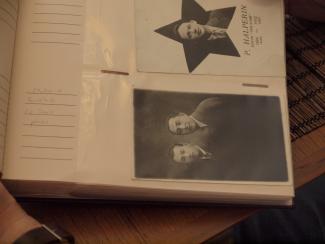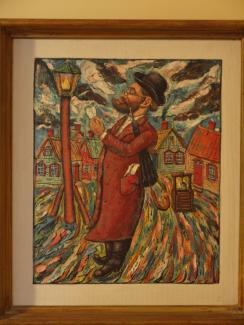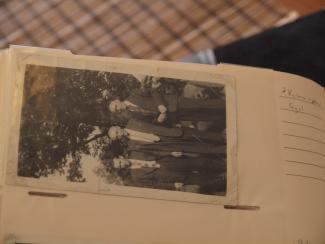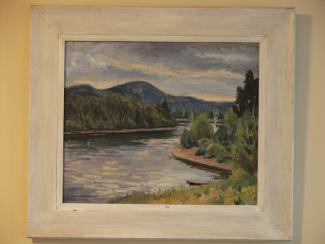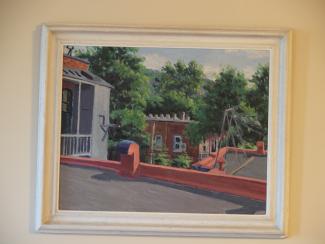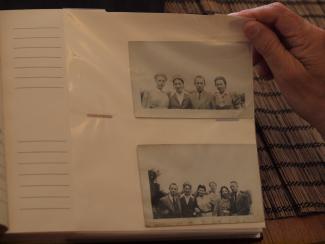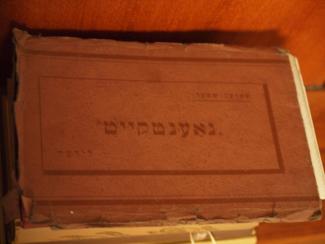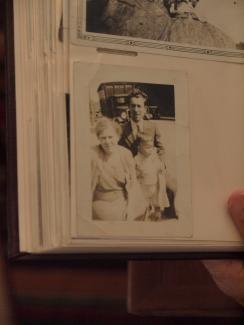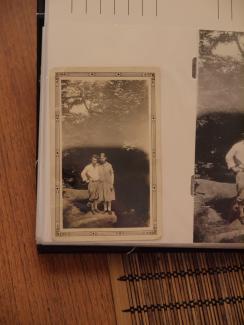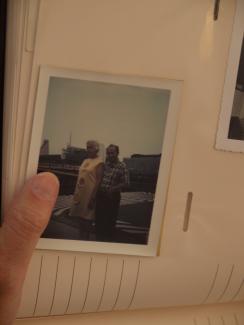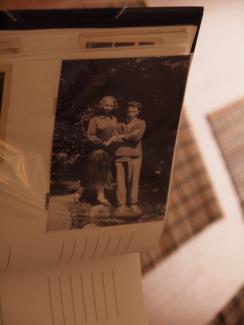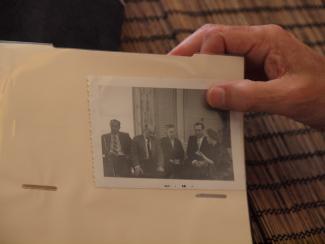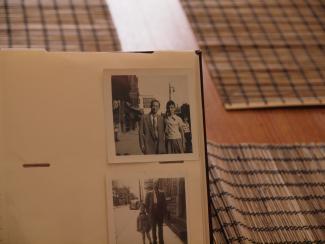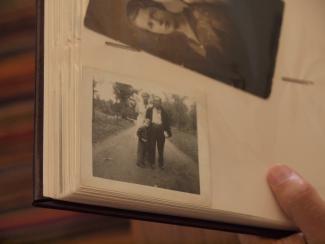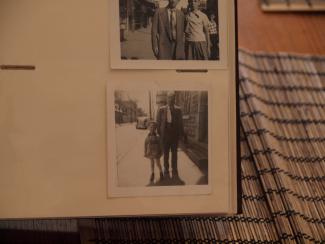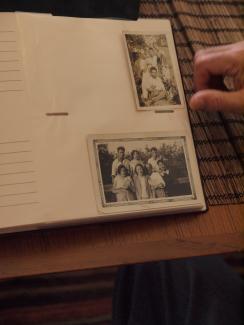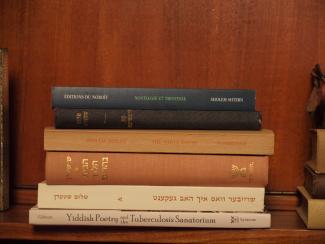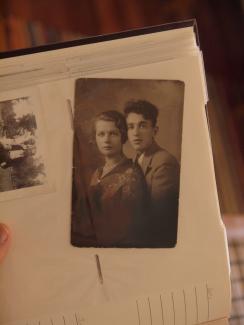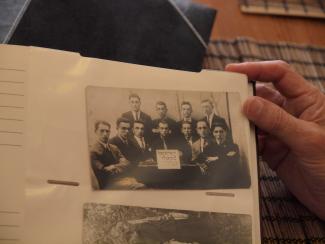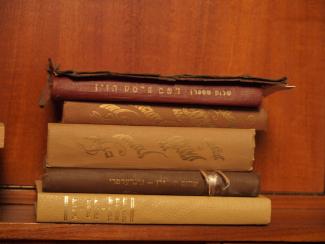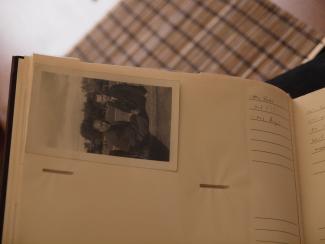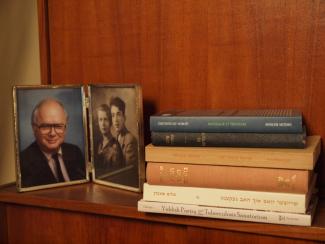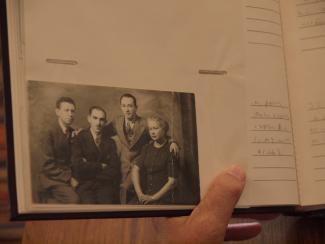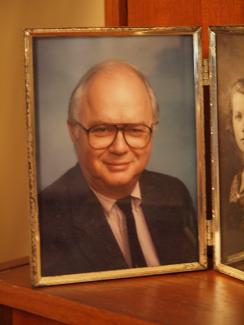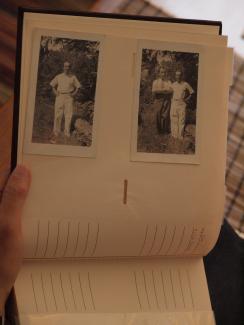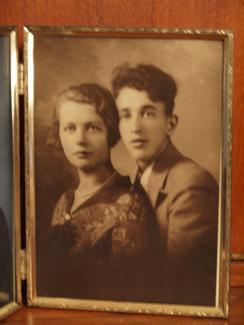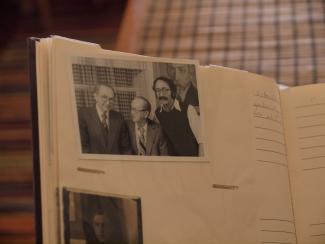The Yiddish Book Center's
Wexler Oral History Project
A growing collection of in-depth interviews with people of all ages and backgrounds, whose stories about the legacy and changing nature of Yiddish language and culture offer a rich and complex chronicle of Jewish identity.
David Shtern's Oral History
David Shtern, son of Yiddish writer Sholem Shtern, was interviewed by Christa Whitney on July 20, 2016 in Mississauga, Ontario, Canada. Sholem was born into an impoverished Hasidic family in Tishevitz, Poland. All 10,000 Jews who remained there when the war started perished. But most of Sholem's family emigrated to Montreal in the 1930s. His father told David stories about the old country, including stories about stealing potatoes to have enough to eat and Trotsky speaking in the town square. Sholem got involved in radical politics and aspired to be a writer while still in Poland. Once in Canada he became involved in the secular, progressive United Jewish People's Order. David believes that he was an idealist rather than an idealogue. Years later he became very disillusioned with Communism when news of Stalin's atrocities became known, and he was ostracized by some Yiddish writers who could not give up the cause. Sholem regarded the Stalin era as the second great tragedy to befall the Jewish people in the twentieth century. David describes the modest house in Montreal where he grew up. His parents spoke only Yiddish at home, did not care about material things and were focused on cultural matters and making the world a better place. To make a living, Sholem was the principal of a shule and wrote articles for Yiddish newspapers and journals, such as "Yiddishe Kultur" and the "Freiheit." He was the kind of writer who believed in being out among people, and he would often engage in conversation with casual strangers to learn about their lives. David as a teen was often embarrassed by his behavior. Although his father was a proud Canadian, he was different, and David looked longingly at the families of friends who went on ski vacations and watched sports on television. David describes his father's books – poetry, novels in verse, and biography –including "The White House" about a TB sanitorium and "Writers I've Known" with chapters about Mani Leib, Moyshe-Leyb Halpern and Sholem Asch. Uniquely for his cohort, his work focused on the Jewish immigrant experience in Canada rather than on the old country. His last two novellas address assimilation, intermarriage, and Zionism. David's Yiddish book club recently read "The White House" in the original. In retrospect David realizes that he had wonderful parents and sees how growing up in his household shaped him as a human being. He wishes that his father still had a readership; he wrote beautifully and chronicled a world that no longer exists in Canada. David talks about his father's death and laughs about how, impractically, he never reserved a double plot in the cemetery, making his tombstone difficult for his son to find. He ends the interview reading an excerpt from "The White House" in Yiddish and in English and talks about how proud his father would be to learn that a quotation from him about his beloved city is included in a recently mounted exhibit in a Montreal museum.
This interview was conducted in English.

